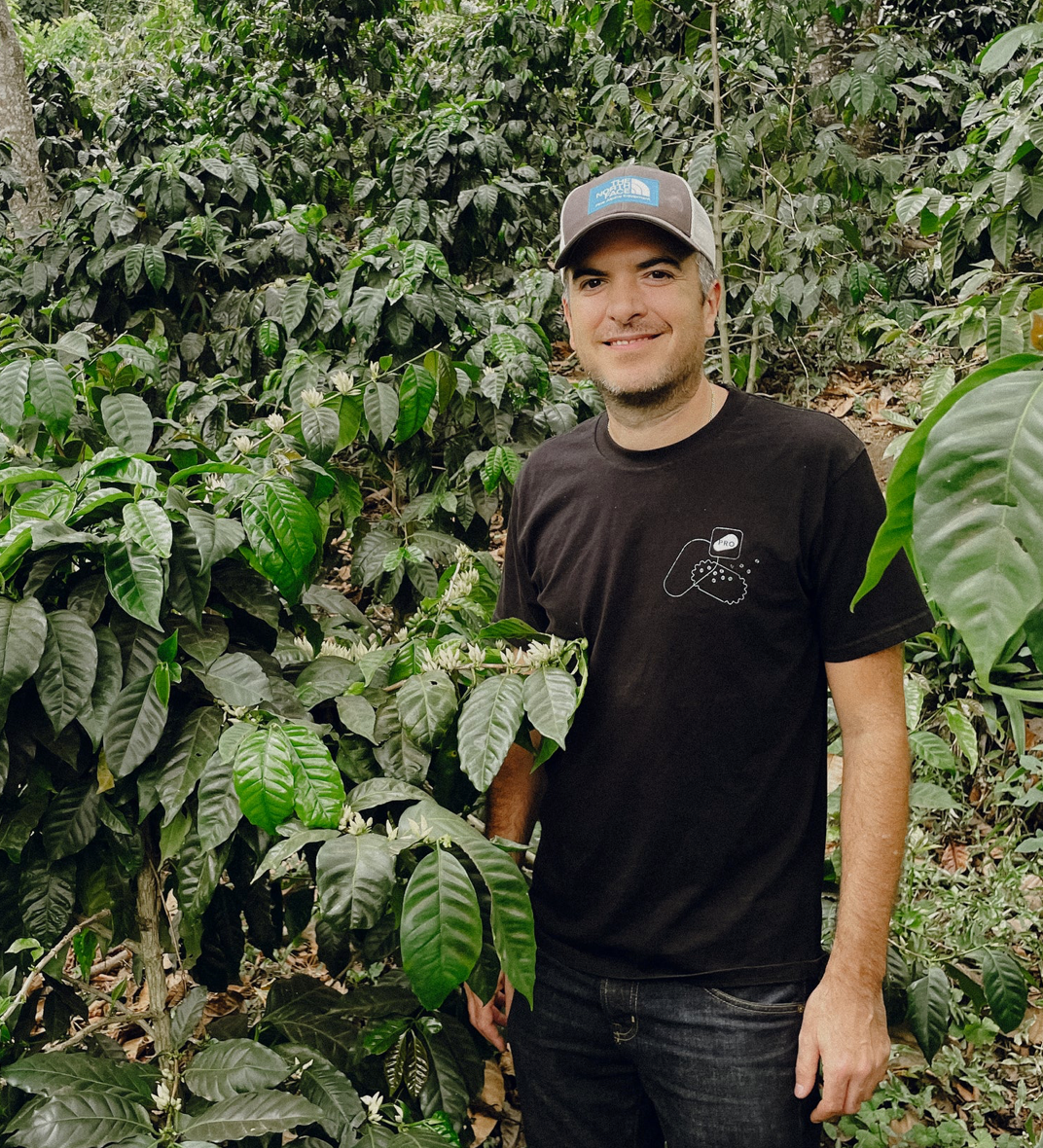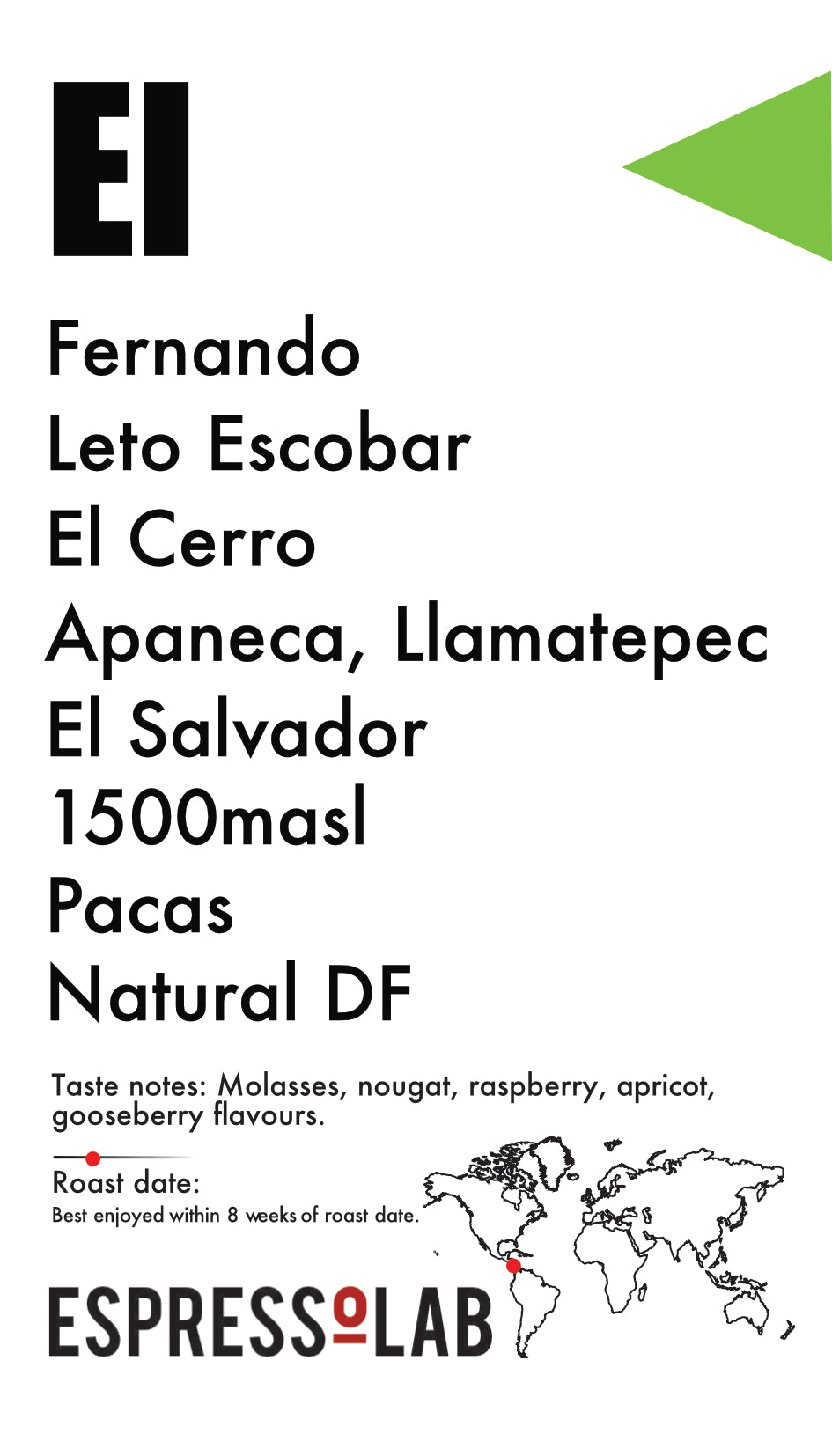Espresso Lab Microroasters
EL SALVADOR, Fernando Leto Escobar, El Cerro, Apaneca, Llamatepec
EL SALVADOR, Fernando Leto Escobar, El Cerro, Apaneca, Llamatepec
Share
Couldn't load pickup availability
Producer: Fernando Leto Escobar.
Growing altitude: 1500m above sea level.
Botanical variety: Pacas.
Process: Natural Dry Fermentation.
Tasting notes: Molasses, nougat, raspberry, apricot, gooseberry flavours.
Roast date: 22 December, 2025
Nestled in the eastern highlands of El Salvador, Finca El Cerro is the legacy of five generations of coffee producers. The Escobar family has been growing coffee for more than 150 years, cultivating deep knowledge, resilience, and a commitment to quality that spans lifetimes.
The farm is located at 1,500 meters above sea level in the world-renowned Apaneca-Ilamatepec coffee-growing region—surrounded by indigenous forests that create an ideal microclimate for producing exceptional coffee.
Today, Fernando Leto Escobar oversees the farm, carrying forward the vision of his late father, Don Fernando Sr., who entrusted him with the land and its legacy in 2016. Since taking the reins, Fernando has led the transformation of Finca El Cerro into a vertically integrated operation—managing coffee from tree to export.
In 2016, the farm established its own eco-friendly wet mill, giving Fernando and his team full control over processing and quality.
Finca El Cerro prioritizes environmental responsibility, with multiple zones transitioning to fully organic production. The team uses eco-conscious farming practices to reduce impact and improve soil health, ensuring long-term sustainability for both the land and the surrounding ecosystems.
The farm processes coffee using multiple methods, including Washed, Honey, Natural and more recently, experimental fermentations
One notable process is a dry fermentation method, where select, ripe cherries are first fermented in shaded tanks for 48 hours, Then, they are slow-dried on African raised beds over 30 days. First days in sun, to initiate drying, final days in shade, to slow it down and stabilise flavour development.
Fernando and his team are actively experimenting with varietals, selecting only seeds from plants that show the best performance in both cup quality and agronomic traits.
One such variety is Pacas—a natural Bourbon mutation discovered in 1949 in Santa Ana, El Salvador. Like Caturra and Villa Sarchi, Pacas has a single-gene mutation that limits plant size. This dwarf stature allows for denser planting and increased yield per hectare, making it both efficient and high-potential in cup quality.
“Our family has been working this land for five generations, but every season still teaches us something new. We honor tradition, but we always look forward.”
— Fernando Leto Escobar




